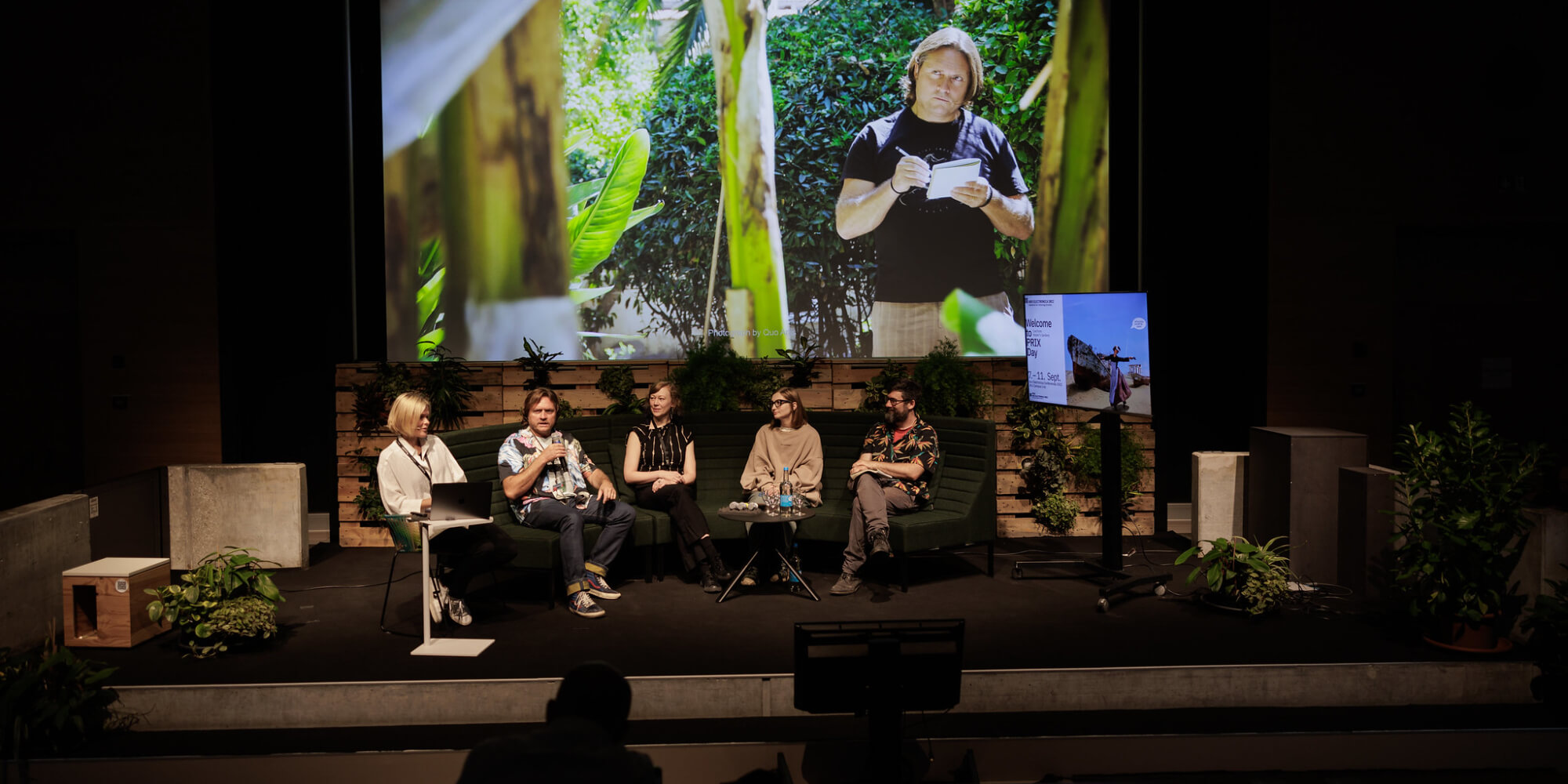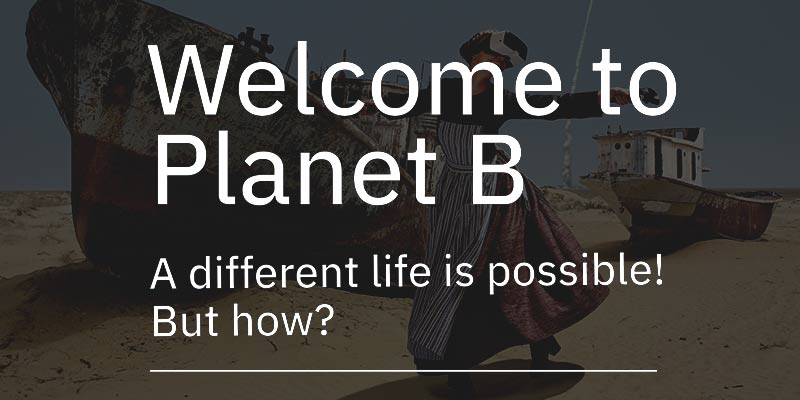Panel Discussion with Q&A
As the biodiversity crisis and the climate emergency are threatening to make life on Earth unbearable, art and science practices, approaches, and aesthetics have the potential to create a new framework to develop tools and strategies against biodiversity crisis. Stemming from the Creative Europe Project “Roots & Seeds: Biodiversity Crisis and Plant Resistance”, an international panel comprised of artists, scientists and researchers whose practice revolves around art and science will share with the audience their outcomes and emotions regarding the emergency we are currently living in.
Chair:
Claudia Schnugg (AT)
Speaker:
Ekaterina Nikitina (RU)
Gabino Carballo (ES)
Tatiana Kourotchkina (RU)
Zackery Denfeld (US)
Biographies
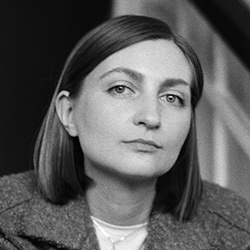 Ekaterina Nikitina (RU) is a researcher in the field of critical animal studies, Ph.D. in literary studies (University of Silesia, Poland) and is a member of Posthuman Studies Lab — a post-disciplinary research platform that unites scientists, artists and philosophers in the collective rethinking of ecological and political legacy of post-soviet territories. All the Posthuman Studies Lab investigations are collected in their website: ferations.world
Ekaterina Nikitina (RU) is a researcher in the field of critical animal studies, Ph.D. in literary studies (University of Silesia, Poland) and is a member of Posthuman Studies Lab — a post-disciplinary research platform that unites scientists, artists and philosophers in the collective rethinking of ecological and political legacy of post-soviet territories. All the Posthuman Studies Lab investigations are collected in their website: ferations.world Gabino Carballo (ES): Landscape architect and project manager with extensive experience in the application of nature based solutions, urban biodiversity promotion and green space design and management. He has worked for over sixteen years as a internal consultant for Barcelona’s Local Government, where he has worked on the implementation of naturalization policies and techniques. Prior to this he worked on public, corporate and private landscape and garden design, both in Spain and other countries. He is a regular guest lecturer in in various academic institutions and the author of several technical publications, articles and essays. He is also a board member of the Spanish association of public parks and gardens, with responsibility for communication and international relations. He has a long standing interest in art, design and their relationship with urban design and the environment
Gabino Carballo (ES): Landscape architect and project manager with extensive experience in the application of nature based solutions, urban biodiversity promotion and green space design and management. He has worked for over sixteen years as a internal consultant for Barcelona’s Local Government, where he has worked on the implementation of naturalization policies and techniques. Prior to this he worked on public, corporate and private landscape and garden design, both in Spain and other countries. He is a regular guest lecturer in in various academic institutions and the author of several technical publications, articles and essays. He is also a board member of the Spanish association of public parks and gardens, with responsibility for communication and international relations. He has a long standing interest in art, design and their relationship with urban design and the environment Tatiana Kourotchkina (RU): Master of Landscape Architecture from the University of Architecture of Venice, focused on Landscape Research applied to urban biodiversity and ecology, curator and producer of art related to science. Founder of the art and science foundation Quo Artis (Barcelona, ES) and a columnist for Retina Tendencias (El País, ES).
Tatiana Kourotchkina (RU): Master of Landscape Architecture from the University of Architecture of Venice, focused on Landscape Research applied to urban biodiversity and ecology, curator and producer of art related to science. Founder of the art and science foundation Quo Artis (Barcelona, ES) and a columnist for Retina Tendencias (El País, ES).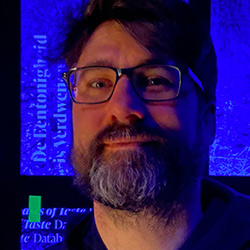 The Center for Genomic Gastronomy is an artist-led think tank launched in 2010 by Cathrine Kramer (NO) and Zack Denfeld (US) that examines the biotechnologies and biodiversity of human food systems. Their mission is to map food controversies, prototype alternative culinary futures and imagine a more just, biodiverse & beautiful food system. Since 2013 they have been joined by the artist Emma Conley (US) and are currently based in Amsterdam (NL) and Porto (PT).
The Center for Genomic Gastronomy is an artist-led think tank launched in 2010 by Cathrine Kramer (NO) and Zack Denfeld (US) that examines the biotechnologies and biodiversity of human food systems. Their mission is to map food controversies, prototype alternative culinary futures and imagine a more just, biodiverse & beautiful food system. Since 2013 they have been joined by the artist Emma Conley (US) and are currently based in Amsterdam (NL) and Porto (PT).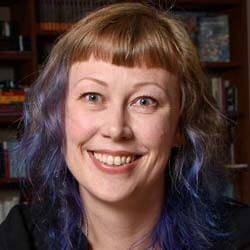 Claudia Schnugg (AT) holds a PhD in social and economic sciences with an additional focus on cultural sciences and media arts. Her ongoing practice in the field of art and science is twofold: as scholar she is researching artscience collaborations, investigating effects and impact of such art-science exchange on actors, organizations involved and the relevance of the outcome. Thereby, she is also exploring new ways of employing artistic strategic strategies in scientific research. For example, she is currently principal investigator of the DIGI-Sense project at Johannes Kepler University Linz and realizes research on artscience processes for the Roots & Seeds XXI project. As a curator, she works with artscience processes, projects, and programs, but also develops exhibitions at the intersection of art and science. Currently, she is curating and consulting artist-in-residence programs and artscience projects at European Space Agency/ESTEC, Institute of Stem Cells and Epigenetics at Helmholtz Center Munich, Science Gallery Berlin, and the Swiss Arts Council Pro Helvetia. Her most recent book is Creating Art Science Collaborations (2019), published by Palgrave Macmillan.
Claudia Schnugg (AT) holds a PhD in social and economic sciences with an additional focus on cultural sciences and media arts. Her ongoing practice in the field of art and science is twofold: as scholar she is researching artscience collaborations, investigating effects and impact of such art-science exchange on actors, organizations involved and the relevance of the outcome. Thereby, she is also exploring new ways of employing artistic strategic strategies in scientific research. For example, she is currently principal investigator of the DIGI-Sense project at Johannes Kepler University Linz and realizes research on artscience processes for the Roots & Seeds XXI project. As a curator, she works with artscience processes, projects, and programs, but also develops exhibitions at the intersection of art and science. Currently, she is curating and consulting artist-in-residence programs and artscience projects at European Space Agency/ESTEC, Institute of Stem Cells and Epigenetics at Helmholtz Center Munich, Science Gallery Berlin, and the Swiss Arts Council Pro Helvetia. Her most recent book is Creating Art Science Collaborations (2019), published by Palgrave Macmillan.Credits
Roots & Seeds XXI. Biodiversity Crisis and Plant Resistance is an international Creative Europe project between Ars Electronica (AT), Leonardo/OLATS (FR), University of Barcelona (ES) and Quo Artis (ES) as lead partner. The project aims to improve action and behavioural commitments to sustainability by using Art & Science practices, approaches, and aesthetics to develop an emotional connection for sustainable organizing and living, trying to contribute to our botanical literacy.
